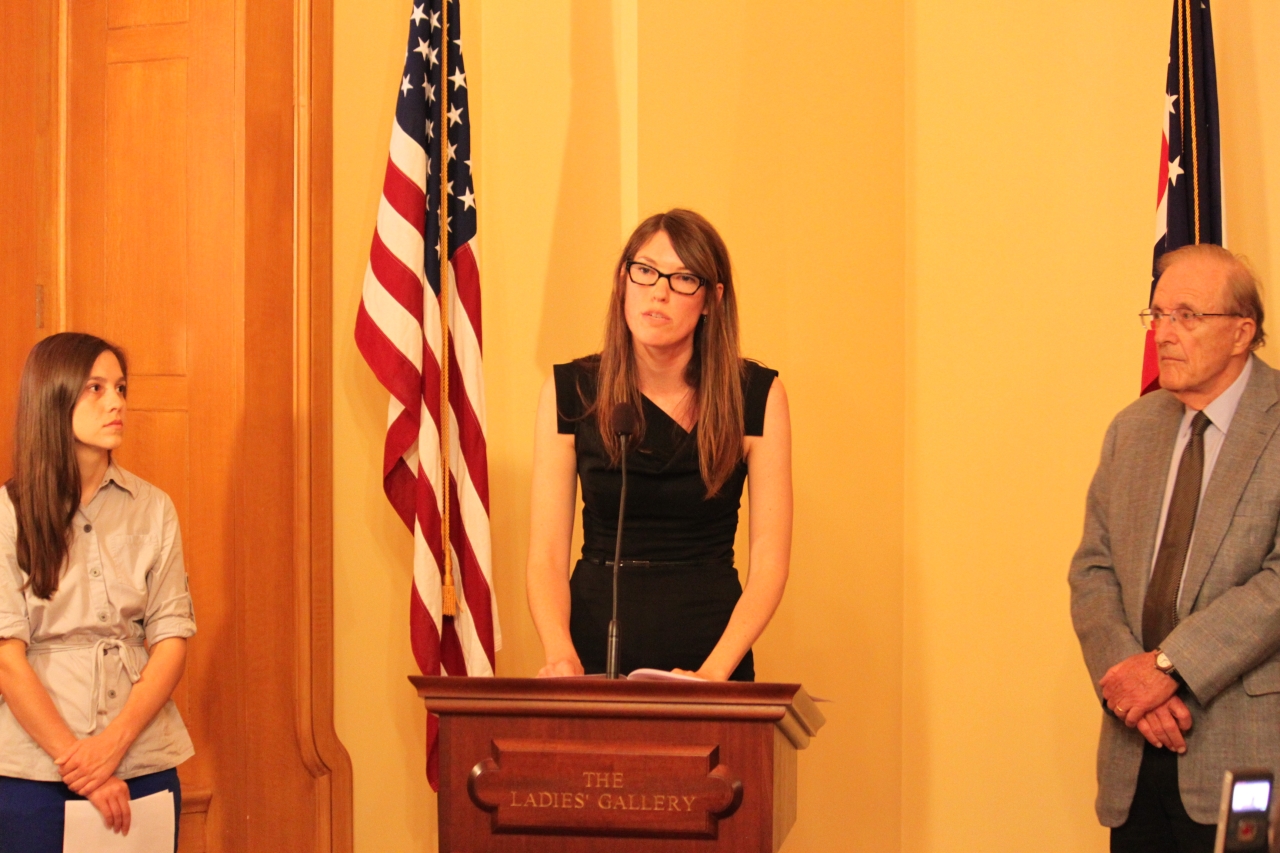Rep. Clyde Introduces Doctor-Patient Relationship Protection Act

State Rep. Kathleen Clyde (D-Kent), accompanied by Dr. Grant Morrow and patient advocate Samantha Rhodes, Thursday announced the introduction of the Doctor-Patient Relationship Protection Act, which puts the emphasis in Ohio back on patient safety and protects doctors from having to choose between following the law and abiding by the ethical standards of their profession.
“The Doctor-Patient Relationship Protection Act ensures that health care providers who have a professional and ethical obligation to provide evidence-based, individualized and medically-appropriate care can do so without interference,” said Rep. Clyde. “This bill gives Ohio’s patients the confidence that their doctors are giving them information they can trust to make informed decisions about their health care.”
Governor Kasich’s most recent budget, HB 59, requires that doctors must perform medically unnecessary ultrasounds and read scientifically suspect information to patients. This puts doctors in an impossibly difficult situation, forcing them to either go against their training and best medical standards or follow their training and risk legal liability.
Cincinnati patient advocate Samantha Rhodes recounted the difficulties her friend encountered in the exam room as a result of provisions of HB 59. “Laws like mandatory ultrasounds are political interference in medical decision-making, not part of a true informed consent process,” she said. “Politicians should not be involved in personal medical decisions.”
The Doctor-Patient Relationship Protection Act ensures that doctors who choose to follow their medical training and refrain from performing medically unnecessary procedures or delivering inaccurate and scientifically unsound information to patients will not be held liable or face criminal charges.
“In my 55 years of practicing medicine, I have relied on scientific facts and evidence-based practices and followed established guidelines provided by the American Academy of Pediatrics and the American Medical Association,” Dr. Grant Morrow said. “Those are the pre-eminent organizations for my specialty, and that’s where I turn for the latest standards in medicine—not to the Ohio legislature. How are doctors to provide care that is safe, individualized and medically appropriate if we are told to ignore our ethical and established medical standards?”
Twenty legislators have signed on as co-sponsors of the legislation. They include Representatives Antonio, Ashford, Bishoff, Boyd, Carney, Celebrezze, Fedor, Foley, Gerberry, R. Hagan, Heard, Letson, O’Brien, Patterson, Phillips, Redfern, Reece, Sheehy, Slesnick and Stinziano.




